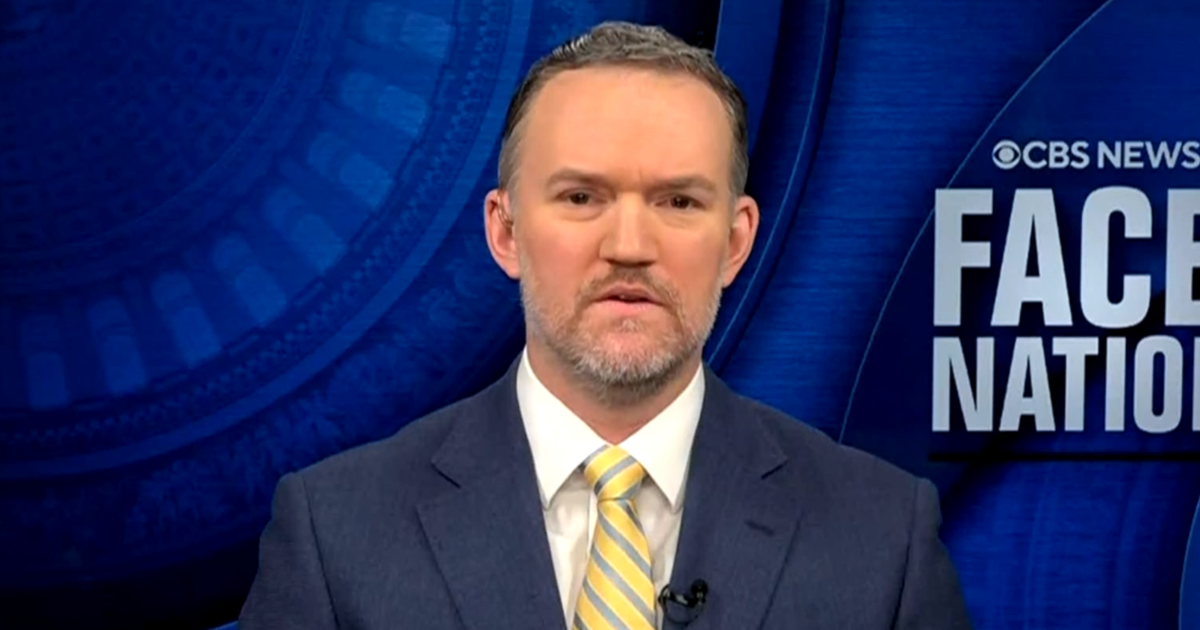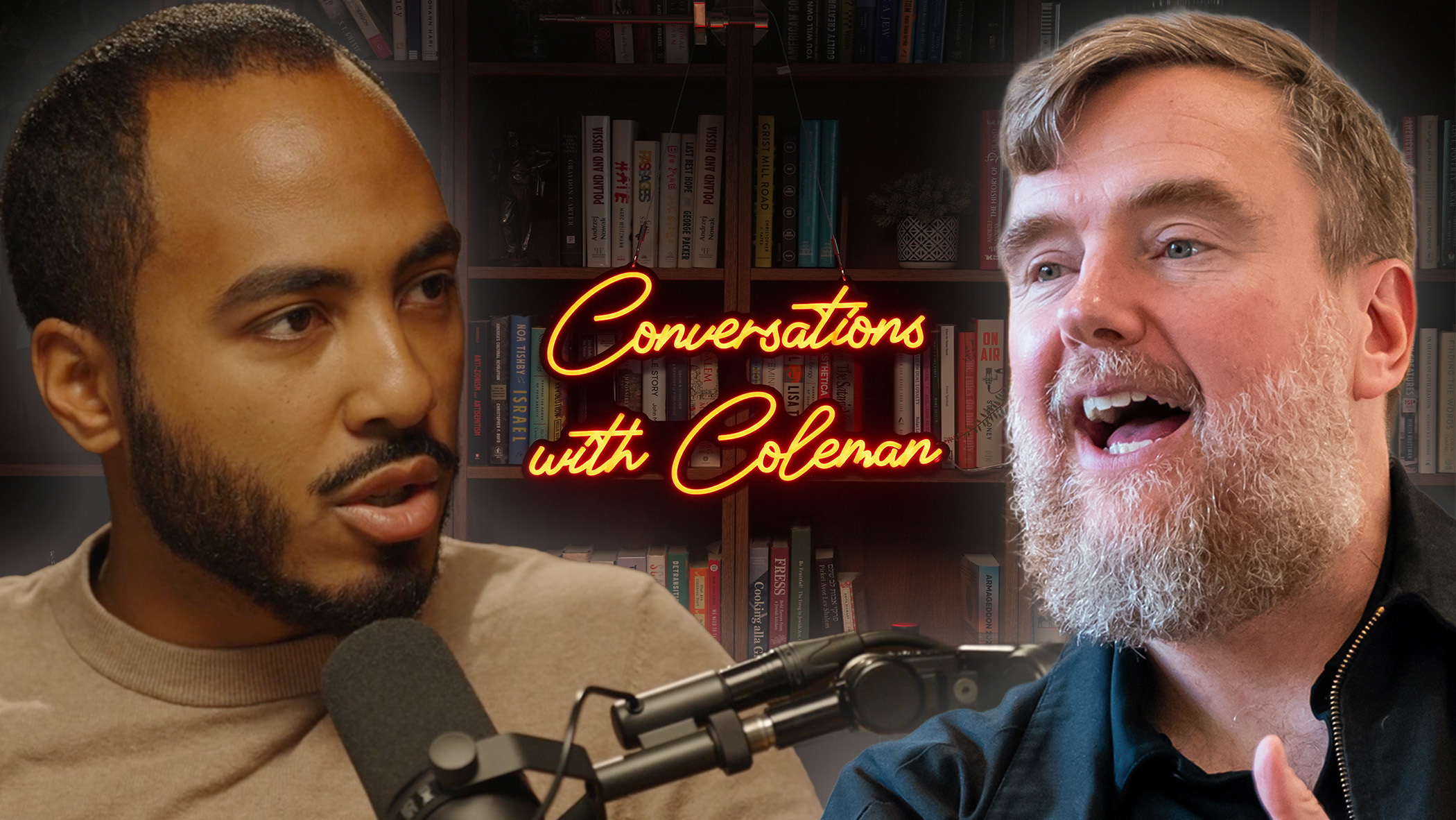Transcript: NAACP President Derrick Johnson on "Face the Nation," November 21, 2021
The following is a transcript of an interview with NAACP President and CEO Derrick Johnson that aired Sunday, November 21, 2021, on "Face the Nation."
MARGARET BRENNAN: We go now to the head of the NAACP, Derrick Johnson, who joins us from Jackson, Mississippi. Good morning to you, sir.
NAACP PRESIDENT AND CEO DERRICK JOHNSON: Good morning.
MARGARET BRENNAN: So, the jury accepted Kyle Rittenhouse's explanation that he was acting in self-defense. President Biden said, you know, this was disappointing in some ways, but the jury system works, and we have to abide by it. You say the verdict itself was dangerous?
JOHNSON: You know, it's hard for African Americans to reconcile what we witnessed in that trial. We have far too many individuals sitting in jail for crimes they didn't commit or overcharged for crimes that were committed. Here you have a 17-year-old who illegally purchased a gun, traveled across state lines to protect property that was not his, for owners who did not invite him, and he put himself in harm's way based on the rhetoric that he's seen on social media platforms. So, it's hard to reconcile the verdict with the experience that many African Americans have faced over several decades. So, this- this trial for us is a warning shot that vigilante justice is allowed in this country or in particular communities.
MARGARET BRENNAN: Kyle Rittenhouse, as you know, has become this sort of icon for some within the conservative movement. He was used back during the campaign by the- by the then Biden campaign team in a campaign video that positioned him as a white supremacist. His mother said that was defamatory to him. The bottom line is this is being politicized. And I'm wondering what you think the impact of that is?
JOHNSON: Well, the current political environment has allowed for this type of behavior. The prior administration has opened the door and many individuals who operate under the banner of white supremacy have run through the door, whether it's Charlottesville or the killings in Pittsburgh at the synagogue, or in Lewisville. And unfortunately, until we have mature politicians willing to stand up, regardless of political affiliations, and address the question of mob violence, vigilantism, but more importantly, the underlying issue of race in this country- something we have never truly addressed.
MARGARET BRENNAN: But there is no evidence of of him being a white supremacist himself. Correct?
JOHNSON: Well, it's not about the evidence of him being a white supremacist. It is about the position that individuals like him find themselves in, where they think they have to go to protect property because of a peaceful protest, in some cases a- Black Lives Matter organizing. Black Lives Matter is a value proposition. It's not- it's not an organization in- in one sense, it's not about a hashtag. It's a value proposition that the lives of African Americans have been diminished and our lives matter. And when you have scenarios like what took place in Wisconsin that caused people to stand up with this police officer who- who paralyzed another innocent individual, you have to begin to ask- we have to ask ourselves the questions. Do we value the lives of not only African Americans, but everyone? And what- what he did was take up the mantle- mantle because the political climate allowed for him to do that. We had a white supremacist in the White House, and it opened the door to this floodgate of vigilante violence. And that's the real question here.
MARGARET BRENNAN: I want to ask you about a lawsuit that the NAACP has you, along with Congressman Bennie Thompson, are suing the former president and Rudy Giuliani, his personal attorney, along with some extremist groups alleging that they violated the Ku Klux Klan Act by conspiracy- by conspiring, I should say, with white supremacists to incite the violence at the Capitol on Jan. 6. As you watch what's happening in Charlottesville, how do you think that that trial, if it has any connection at all, will influence your case?
JOHNSON: Now, understanding the act was created after the Civil War had ended and you had members of Congress pursuing a course to carry out their sworn duty. And any time you have a disruption of- from members of Congress from carrying out their sworn duty, that's a disruption and a violation of the act. And that's what we sued on. Congressman Thompson had to step down as the lead plaintiff, Barbara Lee is now the lead plaintiff. But when you witness what took place on Jan. 6, it falls squarely on what the- the framers of the act intended: that members of Congress, Senate or House members should not be under any threat of intimidation, violence that would prevent them from carrying out their duty.--
MARGARET BRENNAN: I want to ask--
JOHSNON: To witness what took place --
MARGARET BRENNAN: --Sorry, before I let you go, I want to quickly ask you about the current president. His approval rating among Black voters has dipped, 65% approve, 35% disapprove, according to our latest polling. Do you believe President Biden is leading- living up to the
JOHNSON: Still more work to do. I mean, he's- he's delivered on many promises. But the key thing for many of my members and people I've talked to is voting rights protections, and it's the time for the Senate to do their job, adopt voting rights protections, the House have done their job, the Senate must do their job. The president must sign the bill. And I also believe that as we progress in this administration, that will be the true tale. We are within a year of the administration. A lot has been accomplished. There is still so much work to be done. But the number one issue is voting rights protections for African-Americans and for our democracy.
MARGARET BRENNAN: OK, we'll watch those issues. Thank you very much, Mr. Johnson, for your time. Don't go away.



